2020 was an extraordinary year, right from the start. The COVID-19 pandemic quickly spread to every corner of the world, causing understandable concern and severe disruption for nearly the entire global population.
But as we reflect on the impact of the pandemic, we’d do well to consider what we’ve achieved together, too. Looking back a decade or two, it’s unlikely the combined response to such an event could have been as swift and collaborative.
Ultimately, the speed of the global response to the pandemic has been facilitated by technology. As an invaluable ally in our moment of crisis, technology has helped us adapt to new and constantly changing circumstances, and empowered us to innovate and better support our front line health workers, patients, and researchers.
Tackling an unprecedented crisis with technology
With COVID-19 seeing huge volumes of patients hospitalized and placed in intensive care, healthcare providers have been forced not only to oversee the treatment of thousands of critically-ill patients, but to cope with the resulting strain on staff and resources, too.
It’s against this backdrop that we were compelled to focus on developing digital health solutions that could improve care outcomes and support HCPs.
So we’re thrilled that Enodatis, our web-based clinical support tool for COVID-19 , has been recognized with the Irish MedTech Association’s eHealth Innovation of the Year Award for making a real difference to our collective response to the pandemic.
We’ve also been selected as part of PM360’s 9th Annual Innovations Issue for a product award recognizing Enodatis as one of the most innovative tools of 2020.
As a company, we’re immensely proud to have contributed to technological advancement in healthcare at a time when it was so urgently needed.
How technology can solve real-world problems
Enodatis is a clinical support tool that helps healthcare professionals in hospitals quickly triage COVID-19 patients with a simple, web-based application on their smartphones.
The tool is designed to:
- Help specialist respiratory clinicians identify and triage the patients most in need of their attention
- Guide non-respiratory clinicians in the delivery of respiratory care with appropriate data and recommendations to support clinical decisions
- Provide senior respiratory team leaders with instant oversight of the condition and patients in their care, helping them to treat patients and optimize and forecast resource requirements – including staff and equipment
Far from creating technology for its own sake, the goal of the project was to solve a real-world problem. Enodatis was developed in close collaboration with RCSI, in a response to a need from respiratory clinicians working in Ireland's hospitals. Dr. Aofie Gallagher explains the collaboration in greater detail in the video below from earlier this year when Enodatis was named a finalist for RSCI's entry into the KTI COVID-19 Response Impact Award.
Today’s learnings can help with tomorrow’s challenges
There’s no question that this year’s pandemic has caused incomparable disruption on a global scale. But it has also demonstrated the importance of technological innovation in healthcare, perhaps more than any other event in our lifetimes. Our own research suggests that 40% of patients believe digital tools can help relieve COVID-fuelled pressure on healthcare systems.
Going forwards, it’s important that digital health solutions aren’t just a remedy we turn to when there’s no alternative. If we’re to better navigate future crises, improve patient wellbeing, and empower healthcare professionals to deliver better care, it’s vital that all players in the industry collaborate further to facilitate innovation in this space. After all, we never know what next month, year, or decade might throw at us.


